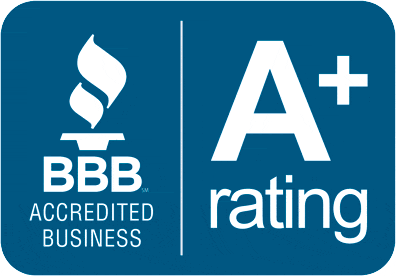How to Protect Your Retirement Savings from Economic Uncertainty
Protect Your Retirement
In today's uncertain economic climate, it's crucial to take proactive steps to protect your retirement savings from the potential risks of an economic collapse. Safeguarding your hard-earned funds requires careful planning and strategic decision-making. This comprehensive guide will provide you with valuable insights and practical strategies to ensure the security and longevity of your retirement savings.

Key Takeaways:
- Diversify your investments across different asset classes and consider defensive stocks, utilities, health care, consumer staples, and government securities for added protection during market downturns.
- Use annuities wisely, choose fixed annuities that guarantee a fixed rate of return or immediate annuities that provide a guaranteed income during uncertain times in retirement.
- Delay Social Security benefits to maximize your overall benefits and allow your benefits to grow.
- Generate additional income through side hustles or part-time work to cover potential losses brought by a recession.
- Stay invested during market downturns, avoid panic-selling, and trust in the long-term potential of your investments.
Protecting your retirement savings requires careful asset allocation, regular portfolio rebalancing, and maintaining cash reserves. Continuously contributing to your 401(k) and considering defensive investments can also help safeguard against market volatility. By following these proactive strategies, you can navigate the uncertainties of an economic collapse and secure a stable financial future.
Diversify Your Investments
One of the key strategies for protecting your retirement savings is to diversify your investments and avoid putting all your eggs in one basket. By spreading your investments across different asset classes, you can mitigate the risk of a single investment negatively impacting your overall portfolio. Diversification is especially crucial during economic downturns when certain sectors may be more vulnerable than others.
When it comes to securing retirement savings, consider including defensive stocks, utilities, health care, consumer staples, and government securities like Treasury bonds in your portfolio. These assets tend to be more resilient during market downturns and can provide a level of stability to your investments. By diversifying your holdings, you can potentially reduce the impact of market volatility on your retirement savings.
| Asset Class | Characteristics |
|---|---|
| Defensive Stocks | Stable companies that tend to perform well even during economic downturns. |
| Utilities | Companies that provide essential services, such as electricity and water, which tend to have steady demand regardless of the economic climate. |
| Health Care | Pharmaceutical, biotechnology, and healthcare companies that offer products and services that remain in demand even during recessions. |
| Consumer Staples | Companies that produce or sell essential consumer products like food, beverages, and household goods, which tend to have stable demand regardless of economic conditions. |
| Government Securities | Investments in Treasury bonds or other government-issued securities, which are considered safe havens during times of market volatility. |
By including these asset classes in your retirement portfolio, you can enhance the defense mechanisms against market downturns while potentially achieving more consistent returns over the long term.
Utilize Annuities Wisely
Annuities can be a valuable tool for protecting your retirement assets and ensuring a secure financial future. By incorporating annuities into your retirement strategy, you can create a dependable stream of income that can help safeguard your savings from market volatility. There are different types of annuities you can consider, each with its own features and benefits.
"Annuities can provide safety and returns during uncertain times in retirement if used correctly."

| Type of Annuity | Features | Benefits |
|---|---|---|
| Fixed Annuities | Guaranteed rate of return | Stable income during market downturns |
| Immediate Annuities | Regular, consistent income | Protection against economic collapse |
Fixed annuities offer a fixed rate of return, ensuring that your principal is protected while earning a consistent income. This can be particularly beneficial during uncertain economic times when other investment options may be unreliable.
Immediate annuities, on the other hand, provide a guaranteed income for life, shielding you from market fluctuations and economic uncertainties. This type of annuity can offer peace of mind and financial security, regardless of market conditions.
Considerations for Utilizing Annuities
- Evaluate your retirement goals and financial needs to determine the type of annuity that aligns best with your objectives.
- Review the terms and conditions of the annuity contract carefully, including any potential fees or surrender charges.
- Work with a reputable financial advisor who specializes in retirement planning to ensure you make well-informed decisions.
"By incorporating annuities into your retirement strategy, you can create a dependable stream of income that can help safeguard your savings from market volatility."
Regardless of the type of annuity you choose, it's crucial to take the time to understand the terms and conditions fully. Working with a knowledgeable financial professional who can guide you through the complexities of annuities can provide you with peace of mind and confidence in your retirement plan.
Delay Social Security
Delaying your Social Security benefits can be a strategic move to preserve and maximize your retirement savings. By delaying your benefits, you can increase the amount you receive each month and potentially increase your overall benefits. While it may be tempting to start receiving benefits as soon as you are eligible, waiting a few years can have significant long-term financial advantages.
According to the Social Security Administration, your benefit amount increases by about 8% for each year you delay receiving benefits between your full retirement age (typically between 66 and 67) and age 70. This means that if your full retirement age is 66 and you delay benefits until age 70, your monthly benefit amount could increase by up to 32%.
Delaying Social Security benefits can provide financial safety by allowing your benefits to grow and maximizing your retirement income. During this delay period, you can use other retirement accounts or resources to cover living expenses. This approach can help preserve your retirement savings and provide a higher monthly income during your later years when you may need it the most.

| Age | Full Retirement Age (FRA) | Monthly Benefit at FRA | Monthly Benefit if Delayed Until Age 70 | Percentage Increase |
|---|---|---|---|---|
| 62 | 66 | $1,500 | $1,080 | -28% |
| 66 | 66 | $1,500 | $1,500 | 0% |
| 70 | 66 | $1,500 | $1,980 | +32% |
Table: Benefits of Delaying Social Security
Source: Social Security Administration
Generate Additional Income
In times of economic uncertainty, generating additional income can provide an added layer of security for your retirement savings. By diversifying your income streams and creating multiple sources of revenue, you can protect yourself against potential losses and ensure a more stable financial future.
One option to consider is taking on a side hustle or part-time work. This can be a flexible and convenient way to earn extra money while still maintaining your current job or retirement schedule. Whether it's freelancing, consulting, or starting a small business, there are numerous opportunities to explore based on your skills and interests.

Another avenue to explore is creating passive income streams. This can involve investing in rental properties, real estate crowdfunding, or dividend-paying stocks. Passive income requires an initial investment, but once established, it can provide a steady cash flow that is not directly tied to the stock market or economic conditions.
Remember to carefully consider your options and assess the risks and rewards associated with any additional income strategies. It's important to maintain a balance between generating additional income and preserving your current retirement investments.
By diversifying your income sources, you can better protect your retirement savings and achieve a greater sense of financial security. Consider the options that best align with your skills, resources, and risk tolerance, and take proactive steps to safeguard your financial future.
Stay Invested
It may be tempting to sell or withdraw money from your retirement accounts during market downturns, but staying invested is often the wiser choice for preserving your retirement savings. Historical data shows that the stock market has always recovered from downturns and gone on to reach new highs. Panic-selling or withdrawing funds may lock in losses and prevent you from benefiting from that eventual recovery.
According to a study by Fidelity Investments, investors who stayed fully invested in the S&P 500 from 1980 to 2019 would have seen an average annual return of 8.8%. However, those who missed the best 10 days of the market during that period would have seen their returns drop to just 4.5%. This highlights the importance of staying the course and not trying to time the market.
One way to combat the temptation to sell during market downturns is to maintain a long-term perspective and focus on your retirement goals. Remember that market volatility is a normal part of investing and that downturns can create buying opportunities for patient investors. By staying invested, you give your money the chance to grow and recover over time.

| Market Downturn | Duration | Recovery Time |
|---|---|---|
| Dot-Com Bubble (2000-2002) | 2 years | 3 years |
| Great Recession (2007-2009) | 2 years | 4 years |
| COVID-19 Crash (2020) | 1 month | 3 months |
As you can see from the table above, market downturns have varied in duration, but in most cases, recovery has followed within a relatively short period of time. By staying invested and maintaining a diversified portfolio, you can weather these downturns and potentially benefit from the subsequent market rebounds.
Remember that investing for retirement is a long-term endeavor, and short-term market fluctuations should not derail your financial plans. Consult with a financial advisor to ensure that your investment strategy aligns with your retirement goals and risk tolerance. By staying invested and remaining focused on the big picture, you can preserve and grow your retirement savings over time.
Find the Right Asset Allocation
Finding the right asset allocation is essential for defending and safeguarding your retirement funds against the potential risks of an economic collapse. By diversifying your portfolio across different asset classes, you can minimize the impact of market volatility and position yourself for long-term success.
An effective asset allocation strategy involves determining the optimal mix of stocks, bonds, and cash based on your individual goals, risk tolerance, and time horizon. A common rule of thumb is to subtract your age from 110 to determine the percentage of your portfolio that should be invested in stocks. For example, if you're 50 years old, you might consider allocating 60% of your portfolio to stocks and the remaining 40% to bonds and cash.
It's important to periodically review and adjust your asset allocation to ensure it aligns with your changing financial circumstances and market conditions. Rebalancing your portfolio involves selling investments that have performed well and buying those that have underperformed, bringing your asset allocation back in line with your target percentages.
| Asset Class | Percentage |
|---|---|
| Stocks | 60% |
| Bonds | 30% |
| Cash | 10% |
By maintaining a disciplined approach to asset allocation and regularly rebalancing your portfolio, you can safeguard your retirement funds and mitigate the potential impact of economic downturns.

Regularly rebalancing your retirement portfolio is a critical step in maintaining its security and protecting your investments. By reviewing and adjusting your asset allocation, you can ensure that your portfolio is aligned with your investment goals and risk tolerance.
When market conditions change, certain asset classes may outperform or underperform, causing your portfolio to deviate from its original allocation. Rebalancing allows you to sell investments that have gained value and reallocate those funds to investments that may have declined. This helps to maintain your desired asset mix and reduce the overall risk of your portfolio.
One approach to rebalancing is to set a specific time interval, such as annually or semi-annually, to review and make adjustments. Another method is to rebalance based on predetermined thresholds. For example, if your target allocation for stocks is 60% and it deviates to 65% due to market gains, you may choose to rebalance and bring it back to 60%. Remember, every investor's situation is unique, so it's important to find a rebalancing strategy that aligns with your specific needs.
| Asset Class | Target Allocation | Current Allocation | Deviation (%) |
|---|---|---|---|
| Stocks | 60% | 65% | +5% |
| Bonds | 30% | 25% | -5% |
| Cash | 10% | 10% | 0% |
By rebalancing your retirement portfolio, you can avoid becoming overexposed to specific asset classes that may carry increased risk during economic downturns. It helps you maintain a disciplined approach to investing and stay on track towards your long-term financial goals.
Remember, always consult with a financial advisor or professional before making any investment decisions, as they can provide personalized guidance based on your individual circumstances.

Maintain Cash Reserves
Maintaining adequate cash reserves is a vital component of preserving your retirement savings and ensuring financial stability. Having a sufficient amount of cash on hand can provide a safety net to cover unexpected expenses and protect against the impact of market downturns on your retirement portfolio. When faced with economic uncertainty or a recession, having cash reserves allows you to avoid tapping into your investments and potentially locking in losses.
Financial experts recommend setting aside three to five years' worth of living expenses in cash or cash equivalents. This provides a cushion to cover your day-to-day expenses and any unforeseen circumstances that may arise. By keeping a significant portion of your retirement savings in cash, you can ride out market volatility without the need to sell assets at unfavorable prices.

Furthermore, having cash reserves also allows you to take advantage of potential investment opportunities during market downturns. When the market is down, prices of assets may be discounted, making it an opportune time to buy. By having cash readily available, you can capitalize on these opportunities and potentially generate higher returns in the long run.
In summary, maintaining cash reserves is an essential part of safeguarding your retirement savings. It provides financial security, enables you to navigate uncertain times, and positions you to seize investment opportunities when they arise.
Continuously Contribute to Your 401(k)
Consistently contributing to your 401(k) is a crucial step in protecting your retirement savings and capitalizing on potential market opportunities. While market volatility can be unsettling, staying committed to your long-term retirement goals is key to building a secure financial future.
By regularly adding to your 401(k) account, you take advantage of dollar-cost averaging, which means you buy more shares when prices are low and fewer when prices are high. This strategy can help mitigate the impact of market fluctuations on your overall investment returns.
Additionally, contributing to your 401(k) allows you to take full advantage of any employer matching contributions. Many employers offer a matching program where they contribute a certain percentage of your salary to your retirement account. This is essentially free money that can significantly boost your retirement savings over time.
| Benefits of Consistent 401(k) Contributions |
|---|
| 1. Building a larger nest egg for retirement. |
| 2. Taking advantage of dollar-cost averaging. |
| 3. Maximizing employer matching contributions. |
| 4. Mitigating the impact of market volatility. |
Remember, the key is consistency. Even if the market experiences short-term downturns, stay focused on your long-term goals and continue making contributions to your 401(k) account. Over time, the power of compounding and consistent contributions can help your retirement savings grow substantially.

Protecting your retirement savings requires a combination of strategies, and consistently contributing to your 401(k) is just one piece of the puzzle. By diversifying your investments, using annuities wisely, and maintaining cash reserves, you can further safeguard your financial future. Remember to consult with a financial advisor to determine the best approach for your unique circumstances.
Consider Defensive Investments
During an economic downturn, considering defensive investments can play a pivotal role in protecting and preserving your retirement assets. These types of investments tend to perform well during market downturns and provide a level of stability to your portfolio. By diversifying your investments and allocating a portion of your portfolio to defensive sectors, you can potentially minimize the impact of economic collapse on your retirement savings.
Defensive investments are typically found in sectors that provide essential goods and services, such as healthcare, utilities, and consumer goods. These sectors tend to be less affected by economic downturns as they are less reliant on consumer discretionary spending. By investing in companies within these sectors, you can position yourself to weather market volatility and potentially generate consistent returns.
Another defensive investment strategy is to consider dividend stocks. These are stocks that pay regular dividends to shareholders, providing a steady stream of income even during market downturns. Dividend stocks are often found in sectors such as utilities, real estate, and consumer staples, which have a history of offering stable cash flow and reliable dividends.
Real estate investments, particularly in income-generating properties such as rental properties or real estate investment trusts (REITs), can also be considered defensive investments. Real estate has historically shown resilience during economic downturns, providing a potential source of steady income and long-term appreciation.
| Defensive Investments | Sectors |
|---|---|
| Healthcare | Pharmaceuticals, biotechnology |
| Utilities | Electricity, water, gas providers |
| Consumer Goods | Food, beverages, household products |
| Dividend Stocks | Utilities, real estate, consumer staples |
| Real Estate Investments | Rental properties, REITs |
By incorporating defensive investments into your retirement portfolio, you can help protect your assets and potentially mitigate the negative impact of an economic collapse. However, it's important to remember that no investment strategy is foolproof, and there are always risks associated with investing. Before making any investment decisions, it's advisable to consult with a financial advisor and consider your individual circumstances and risk tolerance.

Safeguarding your retirement savings from economic collapse requires careful planning and strategic decision-making, but the effort is essential for securing a stable and prosperous financial future. By implementing the strategies outlined in this guide, you can protect your retirement funds and minimize the impact of market downturns.
One key strategy is to diversify your investments by spreading them across different asset classes. Consider defensive stocks, utilities, health care, consumer staples, and government securities like Treasury bonds as potential options. By diversifying, you can potentially reduce the risk associated with a single investment and protect your retirement portfolio from economic turbulence.
In addition, utilizing annuities wisely can provide safety and returns during uncertain times. Fixed annuities offer a guaranteed rate of return, while immediate annuities provide a steady income during retirement. By choosing the right annuity, you can secure your retirement assets and ensure a stable financial future.
Delaying Social Security benefits is another effective strategy. By waiting to claim your benefits, you can increase the amount you receive each month and ultimately maximize your overall retirement benefits. While you wait, consider using other retirement accounts or resources to cover your expenses.
Generating additional income through side hustles or part-time work is also a prudent approach. By creating a second stream of income, you can supplement your retirement savings and be better prepared to withstand potential losses during a recession.
Furthermore, it is crucial to stay invested during market downturns. Avoid panic-selling or withdrawing money from your 401(k). Historical data has shown that staying invested and remaining calm during market lows can lead to eventual recoveries and long-term gains.
Remember to find the right asset allocation for your retirement portfolio based on your goals, risk tolerance, and time horizon. Regularly rebalancing your portfolio and maintaining cash reserves are also key strategies to protect your retirement savings.
Lastly, continuously contributing to your 401(k) and considering defensive investments can help safeguard your retirement assets during economic uncertainties. By following these strategies, you can navigate through market volatility and position yourself for a financially secure retirement.
Take charge of your financial future by implementing these strategies and ensuring the protection of your retirement savings from economic collapse. By doing so, you can enjoy peace of mind and confidently face whatever challenges lie ahead.
Make sure to check out our article on How to Protect Your Hard-Earned Savings from Bank Failures. And after reading that article, check out our Tax-Advantaged Gold and Silver Investing for Your Retirement.
FAQ
Q: How do I protect my retirement savings from economic collapse?
A: To protect your retirement savings from economic collapse, it is important to diversify your investments, utilize annuities wisely, delay Social Security, generate additional income, and stay invested during market downturns. Additionally, finding the right asset allocation, regularly rebalancing your portfolio, maintaining cash reserves, continuously contributing to your 401(k), and considering defensive investments can help safeguard your retirement savings.
Q: How can diversifying my investments protect my retirement savings?
A: Diversifying your investments involves spreading your investments across different asset classes. By investing in defensive stocks, utilities, health care, consumer staples, and government securities like Treasury bonds, you can add protection to your retirement portfolio during market downturns.
Q: Can annuities help protect my retirement savings?
A: Yes, annuities can provide safety and returns during uncertain times in retirement if used correctly. Consider fixed annuities that guarantee a fixed rate of return or immediate annuities that provide a guaranteed income.
Q: Why should I delay Social Security?
A: Delaying Social Security benefits can increase the amount you receive each month and maximize your overall benefits. By using other retirement accounts or resources to cover expenses while allowing your Social Security benefit to grow, you can protect and enhance your retirement savings.
Q: How can generating additional income protect my retirement savings?
A: Generating additional income through side hustles or part-time work can help mitigate potential losses brought by a recession. Having a second stream of income safeguards against market volatility and provides an extra cushion for your retirement savings.
Q: Is it advisable to stay invested during market downturns?
A: Yes, staying invested during market downturns is often beneficial. Historical data shows that staying invested and riding out market lows can lead to eventual recoveries and long-term gains for your retirement savings.
Q: How do I find the right asset allocation for my retirement portfolio?
A: Determining the appropriate mix of stocks, bonds, and cash for your retirement portfolio should be based on your goals, risk tolerance, and time horizon. A starting point could be subtracting your age from 110 to determine the percentage of your portfolio that should be invested in stocks.
Q: Why is it important to regularly rebalance my portfolio?
A: Regularly rebalancing your portfolio helps you maintain your desired asset allocation. By selling investments that have gained value and buying those that have declined, you can adjust the balance and reduce risk in your retirement portfolio.
Q: How much cash should I keep in reserves to protect my retirement savings?
A: It is advisable to keep three to five years' worth of living expenses in cash or cash equivalents. This will help cover unexpected expenditures and mitigate the impact of market downturns on your retirement savings.
Q: Should I continue contributing to my 401(k) during market volatility?
A: Yes, it is important to stay consistent with your contributions to your 401(k) even during market volatility. Lowering or stopping contributions during downturns may prevent you from taking advantage of buying opportunities at discounted prices.
Q: What are defensive investments and how can they protect my retirement savings?
A: Defensive investments are investments in sectors like healthcare, utilities, consumer goods, and dividend stocks, as well as real estate investments. These investments tend to perform well during economic downturns and can provide a steady income to protect your retirement savings.
Source Links
Related Articles
Contact Info
Corporate Headquarters:
12100 Wilshire Blvd, Suite 800
Los Angeles, CA 90025
Wyoming Office:
2232 Dell Range Blvd, Suite 284
Cheyenne, WY 82009
Texas Office:
675 Town Square Blvd, Suite 200, Bldg 1A
Garland, TX 75040
corporate@newmontcapitalgroup.com
©2024 Newmont Capital Group, LLC. All rights reserved. Opinions on this website are not indicative of future performance. Precious metals carry risks and may vary in value. Newmont Capital Group does not guarantee profit from metal investments. Purchasing or selling decisions, based on personal research and judgment, are solely the customer's responsibility. Newmont Capital Group does not offer investment, legal, retirement, or tax advice; individuals should consult respective professionals.
Terms and Conditions · Privacy Policy · AML/Compliance and Supervisory Procedures · ADA Compliance · Risk Disclosures · Shipping and Transaction Agreement




